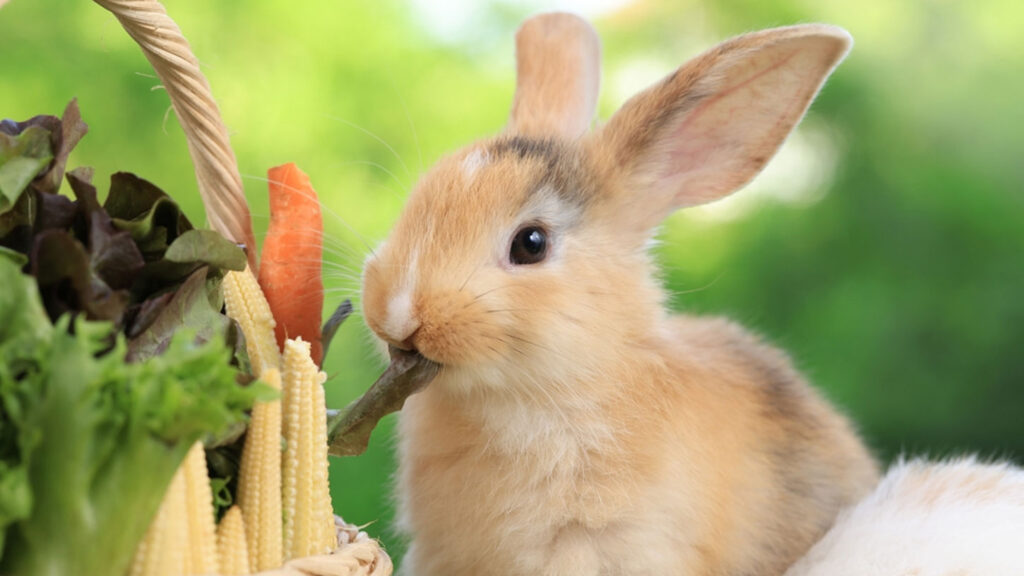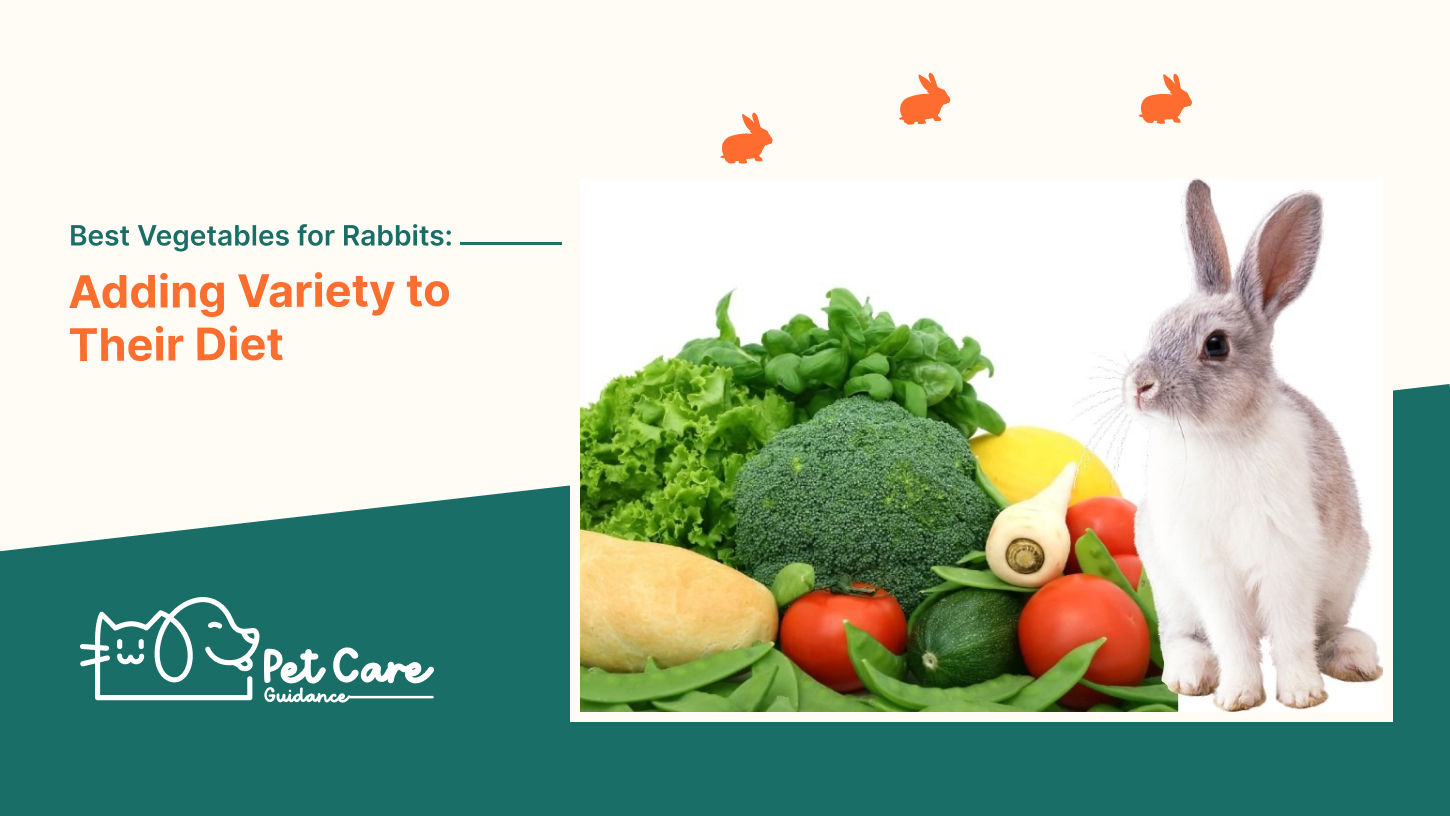The best vegetables to add variety to a rabbit’s diet include pumpkin leaves, radicchio, radish tops, raspberry leaves, various lettuces, watercress, and wheatgrass. These vegetables should be considered as part of a rabbit’s balanced diet, providing essential nutrients and promoting overall health.
Additionally, rabbits also enjoy bell peppers, bok choy, Brussels sprouts, carrot tops, cucumber, endive, escarole, and fennel as their favorite foods. It’s important to avoid feeding rabbits foods that are poisonous to them, such as potatoes, daffodils, tulips, rhubarb, lilies, mushrooms, avocado, and iceberg lettuce.
A rabbit’s diet should primarily consist of fresh water, good quality hay and grass, supplemented with leafy greens and a small amount of pellets. Fresh, clean drinking water and a healthy supply of hay or grass are crucial for a rabbit’s digestive system to function properly.
1. Recommended Vegetables For Rabbits
When it comes to adding variety to a rabbit’s diet, there are several vegetables that are highly recommended. Bell peppers, bok choy, Brussels sprouts, carrot tops, cucumber, endive, escarole, and fennel are all excellent choices. These vegetables not only provide nutritional benefits, but they also add flavor and texture to the rabbit’s meals.
Bell peppers are rich in vitamin C and fiber, while bok choy and Brussels sprouts are packed with vitamins and minerals. Carrot tops are a great source of antioxidants, and cucumber provides hydration. Endive, escarole, and fennel offer a combination of vitamins and minerals.
It’s important to note that rabbits have sensitive digestive systems, so it’s crucial to introduce new vegetables slowly and in small quantities. Monitor your rabbit’s response to each vegetable and adjust accordingly. Remember to always provide fresh water and a good quality hay as a staple in their diet.
| Recommended Vegetables for Rabbits |
|---|
| Bell Peppers |
| Bok Choy |
| Brussels Sprouts |
| Carrot Tops |
| Cucumber |
| Endive |
| Escarole |
| Fennel |

2. Healthiest Vegetables For Rabbits
Vegetables play a crucial role in a rabbit’s diet, providing essential vitamins and nutrients. Here are some of the healthiest vegetables that you can add to your rabbit’s menu:
| Pumpkin Leaves | Radicchio |
| Radish Tops | Raspberry Leaves |
| Squash (Zucchini, Yellow, Butternut, Pumpkin) | Various Lettuces (Romaine, Butter, Green Leaf, Boston, Bibb, Arugula) |
| Watercress | Wheat Grass |
These vegetables provide a variety of flavors and textures, adding nutritional value to your rabbit’s diet. Remember to introduce new vegetables gradually, as sudden dietary changes can upset their digestive system.
Note: It is crucial to avoid feeding rabbits very light hearts or iceberg lettuce. These vegetables have minimal nutritional value and can cause digestive issues. Instead, focus on providing a balanced diet with a mix of the vegetables mentioned above.
Always ensure that the vegetables you feed your rabbits are fresh and thoroughly washed to remove any traces of pesticides. Providing a well-rounded diet will ensure your rabbits stay healthy and happy!
3. Vegetables To Avoid For Rabbits
|
Potatoes: Potatoes are not safe for rabbits to consume. They contain solanine, a toxic substance that can cause digestive issues and even be fatal to rabbits. Daffodils: Daffodils are poisonous to rabbits and should be kept away from their reach. Ingesting daffodils can lead to gastrointestinal problems and may even cause organ damage. Tulips: Tulips contain toxins that are harmful to rabbits. Eating tulips can cause mouth and throat irritation, drooling, vomiting, and diarrhea. Rhubarb: Rhubarb leaves contain oxalic acid, which can be toxic to rabbits. Consumption of rhubarb can cause kidney problems and other health issues. Lilies: Lilies are highly toxic to rabbits. Ingesting lilies can cause kidney failure and can be life-threatening for rabbits. Mushrooms: Mushrooms should be avoided as they can be toxic to rabbits. Some varieties of mushrooms can cause digestive problems and organ damage. |
Avocado: Avocado is toxic to rabbits and should never be fed to them. It contains persin, a substance that can cause respiratory distress and heart failure in rabbits. Broad Beans: Broad beans should not be given to rabbits as they can cause digestive upset and can be challenging for rabbits to digest properly. Sweet Peas: Sweet peas should be avoided as they contain compounds that can cause digestive issues in rabbits. They can lead to gas and bloating. Buttercup: Buttercups are toxic to rabbits. Ingesting buttercups can cause mouth ulcers, drooling, and other gastrointestinal problems. Kidney Beans: Kidney beans should not be fed to rabbits as they contain a toxin called lectin, which can be harmful and may lead to digestive issues. Jasmine: Jasmine plants contain compounds that are toxic to rabbits. Chewing on jasmine leaves or flowers can cause various health problems. Foxglove: Foxglove is highly poisonous to rabbits. Ingesting any part of the plant can lead to severe health issues and can be fatal. Iceberg Lettuce: Iceberg lettuce does not provide many nutritional benefits for rabbits and can cause digestive upset. It is best to avoid feeding it to them. |
Frequently Asked Questions On Best Vegetables For Rabbits: Adding Variety To Their Diet
What Are The Healthiest Vegetables For Rabbits?
The healthiest vegetables for rabbits include pumpkin leaves, radicchio, radish tops, raspberry leaves, various lettuces (such as romaine, butter, and green leaf), watercress, and wheatgrass. Avoid iceberg lettuce.
What Vegetable Do Rabbits Like The Most?
Rabbits most enjoy vegetables like bell peppers, Brussels sprouts, carrot tops, and cucumber.
Which Vegetable Should Not Be Given To Rabbits?
Iceberg lettuce is a vegetable that should not be given to rabbits.
What Is The Best Thing To Feed A Bunny?
The best thing to feed a bunny is fresh, clean drinking water and good quality hay and grass. Supplement their diet with leafy greens and a small amount of pellets. Avoid feeding them foods that are poisonous to rabbits, such as potatoes, mushrooms, and iceberg lettuce.
Conclusion
Incorporating a variety of vegetables into a rabbit’s diet is crucial for their overall health and well-being. From pumpkin leaves to radicchio, there are numerous options for adding nutritional diversity to their meals. Bell peppers, brussels sprouts, and carrot tops are among the favorites of rabbits.
However, it’s important to remember that certain vegetables should be avoided, such as iceberg lettuce. By offering a balanced mix of vegetables, along with fresh water and quality hay, you can ensure that your rabbit receives the best possible diet for optimal health.


